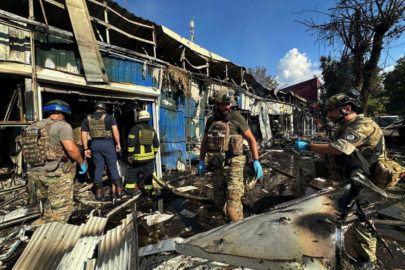“Farms” with automated accounts, trolls and fake news from several dozen sites had been recruited by the extensive network of “structured and coordinated Russian propaganda” from Russia, France has uncovered.
The Economist report, focusing on a report by VIGINUM, the French government agency that focuses on digital interference from abroad, highlights that the network consists of at least 193 websites that “do not produce primary content but massively rebroadcast posts mainly from Russian or pro-Russian accounts on social networks, Russian news agencies and official websites of organizations or institutions.”
Russia’s ‘tradition’ of this kind of disinformation techniques via the Internet is long and dates back at least to 2014. At that time, the aim of Russian ‘bots’ was to justify the invasion of Crimea.
A decade later, Russia’s methods and techniques have greatly improved and Moscow is ready to launch an even bigger campaign.
VIGINUM says it has identified preparations for a disinformation campaign targeting France, Germany, Poland and other European countries. The preparations are linked to the second anniversary of the start of the war in Ukraine and the European elections in June.
Among them are websites, such as topnews.uz.ua, which were created years ago while others have recently ‘woken up’. There are also those created in 2022. For now, the traffic of these websites remains low. However, it is not excluded that we may see them all activated at the same time.
EKPA University: Suspension of the employee who said he was involved in the sabotage of the server
The VIGINUM report states that the sites are made to spread “misleading or false” content about the war in Ukraine on the Internet and social media. The aim is to undermine support for Ukraine in Europe.
It was not the only example of Russian interference.
Last November, the French foreign ministry denounced a “Russian digital interference operation” that disseminated photos of stars of David engraved on walls in a Paris neighborhood, intended to stir up internal tensions in France shortly after the war in Israel began.



































